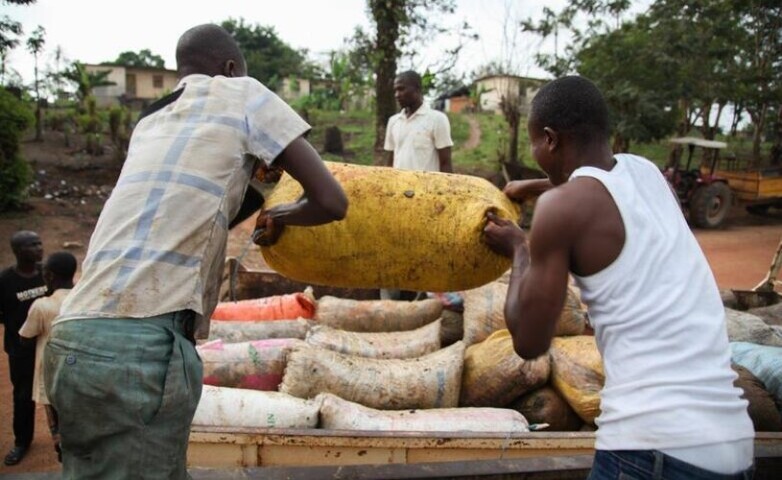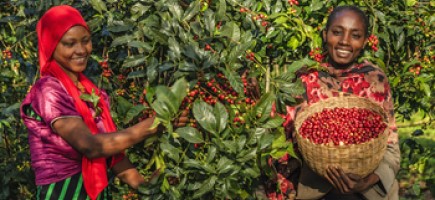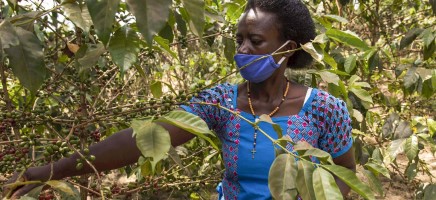Promoting sustainable agricultural supply chains worldwide
Initiative for Sustainable Agricultural Supply Chains (INA)
-
Commissioning Party
German Federal Ministry for Economic Cooperation and Development (BMZ)
-
Country
-
Overall term
2017 to 2024
-
Products and expertise
Rural development and agriculture
Context
Agricultural commodities are often cultivated by smallholder farmers, who are at the beginning of a long supply chain. However, their work usually does not provide for a decent living.
In particular, the cultivation of soy, palm oil, cocoa, coffee and natural rubber is creating a situation whereby people across the globe are destroying forests and ecosystems. This is aggravating climate change and worsens growing conditions for small farmers.
Germany has mainstreamed supply chains that protect forests together with living incomes and wages in the Supply Chain Due Diligence Act (LkSG). Within the European Union (EU), the German Government is also committed to environmentally friendly and fair agricultural supply chains.
Objective
Smallholder farmers are able to live well on their incomes and wages. Moreover, agricultural products are produced in an environmentally friendly manner and traded fairly.
Approach
The Initiative for Sustainable Agricultural Supply Chains (INA) is an open platform comprising actors from the private sector, civil society and policy. It organises events with the aim of making supply chains fair and environmentally friendly and exchanging knowledge.
In its cooperation countries, the initiative implements measures along supply chains – from agriculture to further processing and trade. The focus is on digital solutions that support producers and increase transparency. One example is the digital INATRACE system, which uses a QR code on a product toenhance traceability and transparency.
The initiative also advises German and European institutions on the regulation of supply chains. specialists advise the Federal Ministry for Economic Cooperation and Development (BMZ) on strategies, concepts and the latest regulatory developments.
The project receives financing worth a total of EUR 4.57 million. This comes from the German Initiative on Sustainable Cocoa and Forum for Sustainable Palm Oil, the REWE Group, the Kaufland Foundation, Hofer, Aldi, the LIDL Foundation and dm-Drogeriemarkt.
Last update: June 2023







